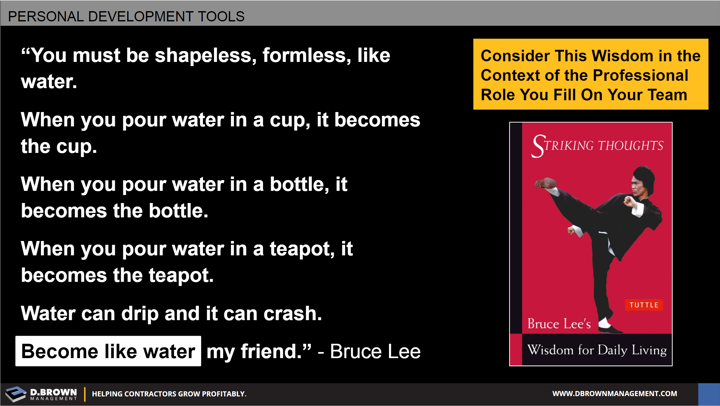As the construction industry continues to get more complicated sometimes it is important to back up and look at simplicity. Here is what “Being Like Water” means at the professional level:
- Utilize every ounce of talent you have to add the maximum amount of value to the customer that you can every single day.
- Be proactive in aggressively learning new skills that will allow you to add even more value.
- Always be looking for opportunities to help those around around you including teaching them new skills and helping them see what winning looks like.
- You can’t ignore your immediate job responsibilities and job description but NEVER let those constrain you. It’s a life-long journey; not a day.
- Before you get into an argument or heated discussion over something ask yourself whether it really matters. Will it really matter tomorrow? In a few weeks? In a few months?
Are you being a rock or water? There are times for both but most of the time being water and focusing on what you can control is the best path.

